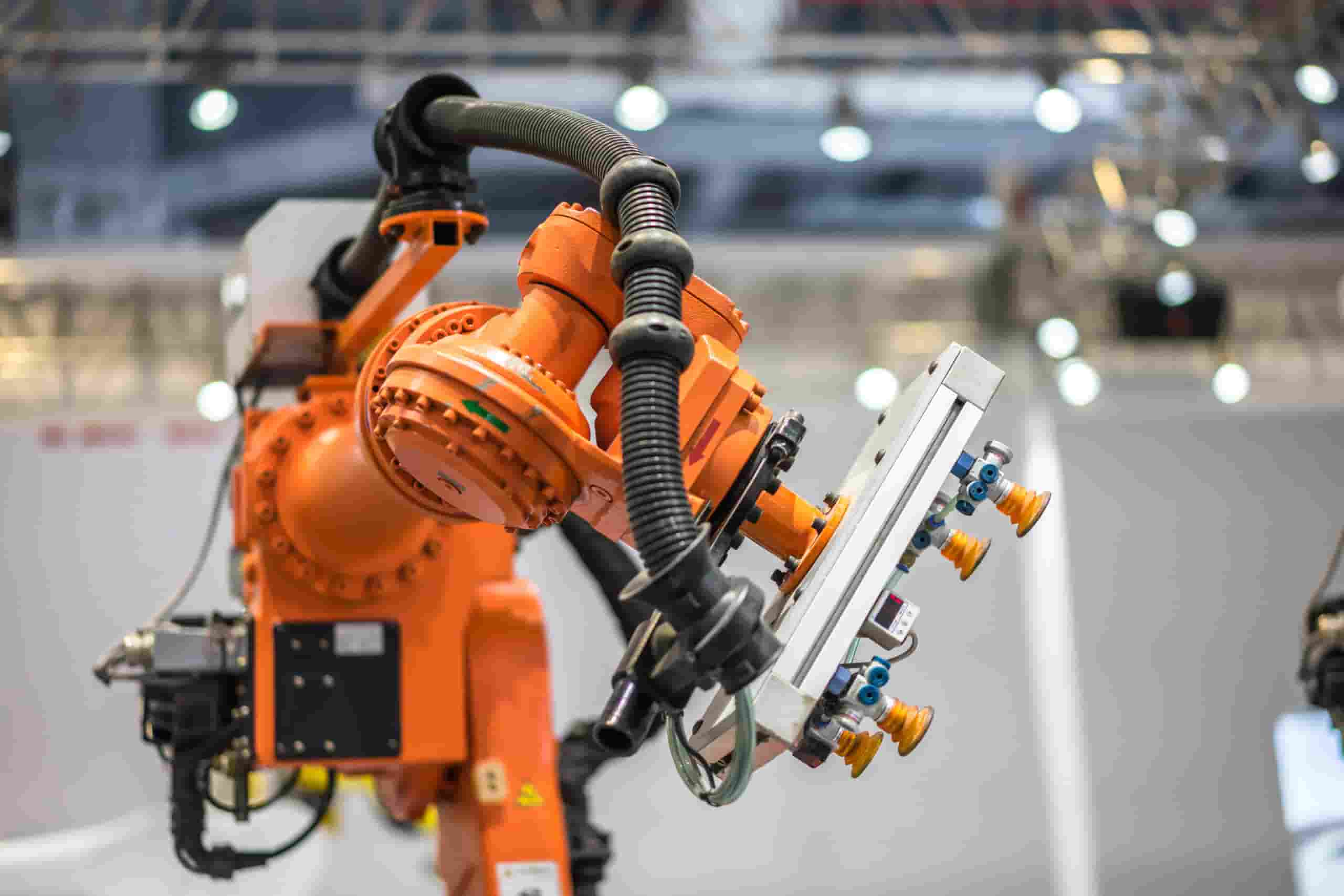The ARM Institute’s new Technology Project Call is now publicly available! While this Project Call is publicly available, you must be an ARM Institute Member to submit a Concept Paper. Explore membership here or email [email protected] for more information.
Concept Papers are due on May 1, 2024 and must be submitted via the ARM Member Community. Log in here or email [email protected] for help using the Community. Full templates are available in the Member Community.
About ARM Institute Project Calls
To best protect and pursue our interests at home and abroad, the United States relies on a robust and innovative domestic manufacturing sector. The ARM Institute, a national, public-private partnership among leaders in industry, academia, and nonprofits, was established to develop, demonstrate, and accelerate the early adoption of novel robotic solutions by funding technology and workforce training projects and by creating an ecosystem that advances robotics technology and education. The four overarching goals of the Institute’s mission are to:
- Empower American workers to compete with low-wage workers abroad;
- Aid in the creation of new jobs to secure U.S. national prosperity;
- Lower the technical, operational, and economic barriers to adopt robotics technologies; and
- Assert U.S. leadership in advanced robotics for manufacturing.
Increased productivity gained by collaborative robotic automation will help create new jobs to build, manage, and maintain the robots; promote expansion of domestic manufacturers, and replace dangerous jobs with safer jobs.
A successful plan that both energizes and galvanizes manufacturing ultimately comes down to identifying the key technologies that are both focused and have broad impact. The question becomes: which technologies to pursue? This raises the classic push-pull problem. The Institute’s strategy is to institute a hybrid policy where we identify technological topic areas, identify manufacturing objectives and needs, break them down into component functions, and eventually map these components back to the technical focus areas. Since technological development occurs in a scaffold of manufacturing needs, our goal is to address a short-term need as well as open the possibility for a high impact unforeseen future gain. To actualize this strategy, ARM Institute periodically releases project calls that solicit solutions in the form of funded robotics projects. Execution
Download Project Call Here
Special Topic Areas
This Project Call centers on several Special Topic Areas:
- Multi-Modal Inputs for AI Robotics in Manufacturing
- Rapid Re-Tasking and Robot Agility
- Multi-Robot, Multi-Human Collaboration
- Virtual Commissioning of Advanced Robotic Systems
The ARM Institute, with input from our advisory councils and the Department of Defense, has identified several application areas of interest. Teams should consider these manufacturing applications as uses cases for their development and demonstration: Casting and Forging, Manufacturing of Hypersonics, Terrestrial Manufacturing for Space, Manufacturing of Energetics, and Manufacturing of Garments and Other Textile Goods. Other application areas are also welcome, but these are current priorities for the organization and its stakeholders.
Casting and Forging: Cast and forged components lie at the heart of critical commercial and defense systems, providing a vital contribution to warfighter readiness for the United States. This problem is particularly exacerbated by the nature of legacy platforms, whose designs and processes were largely conceived, defined, and stored on paper. In tandem with the pervasive challenge of workforce availability, the challenges for the United States to produce low-volume cast and forged components pose a critical and enduring issue.
Manufacturing of Hypersonics: Manufacturing hypersonic systems involve overcoming significant technical challenges due to the extreme speeds and conditions these vehicles encounter. Materials capable of withstanding high temperatures, propulsion systems, guidance mechanisms, and aerodynamic designs are critical aspects being researched and developed in this field. Because of these new materials, robotics and automation solutions are necessary to overcome manufacturing challenges in the production of components and systems in the Hypersonics sector.
Terrestrial Manufacturing for Space: When building space components, there is a higher emphasis on hardening them against radiation. These challenges with the unique materials and how they are processed have made adding automation to the manufacturing of these components very difficult. However, for the US to catch up and remain a world leader in hypersonic and space components, automation and robotics in this type of manufacturing will be critical.
Manufacturing of Energetics: Technologies related to the safe manufacturing of energetics continues to be a high priority for various ARM stakeholders. Traditional energetic material manufacturing processes are labor intensive and involve several non-linear, non-concurrent steps which add to the cycle time and logistical burden to produce in-process material as well as finished pieces. Automation of key steps can be incorporated into the manufacturing process to reduce or eliminate human-in-the-loop interactions.
Manufacturing of Garments and Other Textile Goods: There is significant market demand for apparel and other textile goods from the Defense and Commercial sectors, but the United States presently lacks the ability to compete with international manufacturers due to, among other things, high labor costs and gaps in automation. Maturation, integration, and adoption of automation and robotic technologies will be essential to secure and scale up a defense industrial base for the domestic supply chain of textile goods.
ABOUT THE ARM INSTITUTE
The ARM (Advanced Robotics for Manufacturing) Institute is a Manufacturing Innovation Institute (MII) funded by the Office of the Secretary of Defense under Agreement Number W911NF-17-3-0004 and is part of the Manufacturing USA® network. The ARM Institute leverages a unique, robust, and diverse ecosystem of over 400 consortium members and partners across industry, academia, and government to make robotics, autonomy, and artificial intelligence more accessible to U.S. manufacturers large and small, train and empower the manufacturing workforce, strengthen our economy and global competitiveness, and elevate national security and resilience. Based in Pittsburgh, PA since 2017, with a regional office in St. Petersburg, FL, the ARM Institute is leading the way to a future where people and robots work together to respond to our nation’s greatest challenges and to produce the world’s most desired products. For more information, visit www.arminstitute.org and follow the ARM Institute on LinkedIn and X(Twitter).
